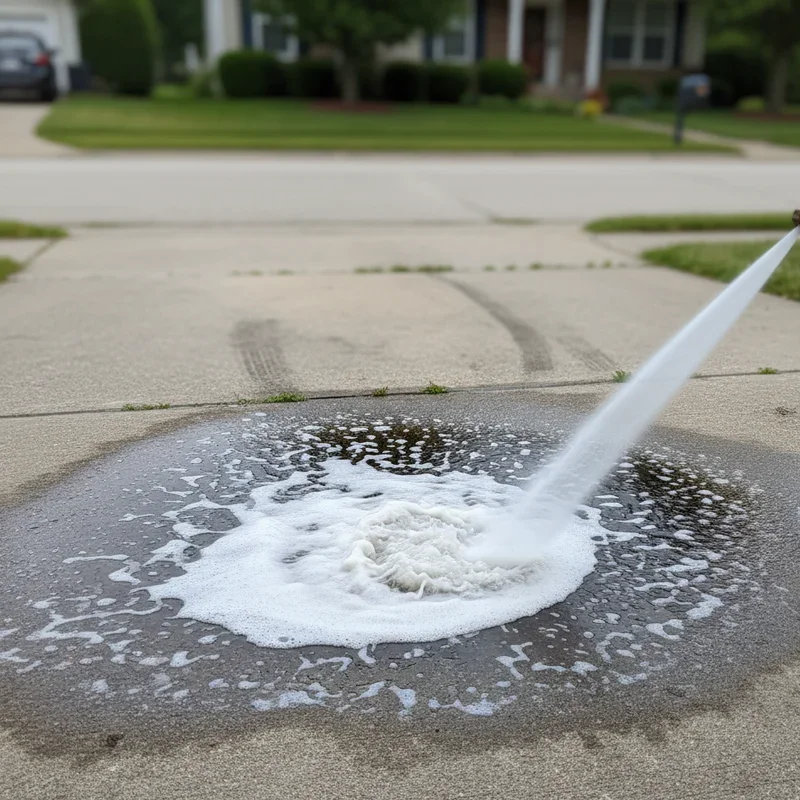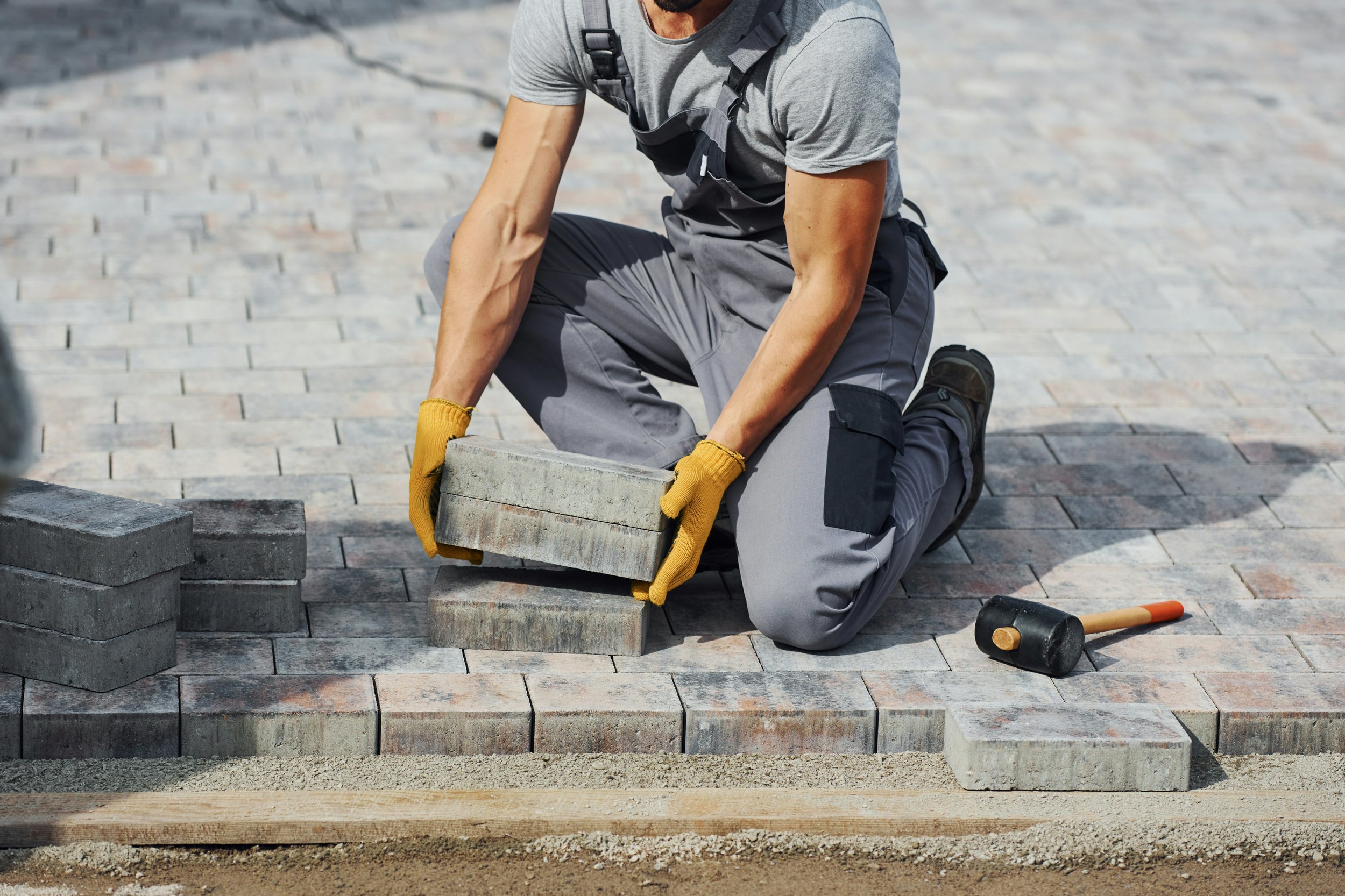How to Clean Oil Off Driveway Quickly and Safely
Learn how to clean oil off driveway quickly and safely with proven methods, household items, and expert tips for lasting results.
Oh boy, there's nothing quite like walking out to your driveway and spotting that dreaded dark stain spreading across your concrete or asphalt. Oil stains are the bane of every homeowner's existence, aren't they? Whether it's from a leaky car, a motorcycle mishap, or that unfortunate cooking oil spill during your backyard barbecue, these stubborn marks can make your pristine driveway look like a mechanic's garage floor. But here's the good news: you don't need to panic or shell out hundreds of dollars for professional cleaning services. With the right approach and a bit of elbow grease, you can tackle these unsightly spots yourself. In this comprehensive guide, we'll walk you through everything you need to know about how to clean oil off driveway quickly and safely, using methods that actually work and won't damage your surface or harm the environment.
Understanding Why Oil Stains Are So Stubborn
Before diving into the cleaning methods, let's talk about why oil stains are such troublemakers. Unlike water-based spills, oil penetrates deep into porous surfaces like concrete and asphalt. It's essentially seeping into all those tiny nooks and crannies, making itself at home in your driveway. The longer you wait, the deeper it goes, and the tougher it becomes to remove. That's why acting fast is your best bet.
Fresh oil spills are significantly easier to handle than old, set-in stains. Think of it like this: removing fresh oil is like wiping up spilled milk, while tackling an old stain is more like trying to remove permanent marker from fabric. Not impossible, but definitely more challenging.
Immediate Action: What to Do When Oil First Spills
Time is of the essence, folks. When you spot that fresh oil spill, don't just stand there staring at it. Here's what you need to do right away:
Step 1: Contain the Spill
Grab whatever absorbent material you have on hand. Cat litter, sawdust, cornstarch, or even sand will do the trick. Pour a generous amount directly onto the oil spill, making sure you cover the entire affected area. This step prevents the oil from spreading further and starts the absorption process immediately.
Step 2: Let It Sit
Patience is a virtue here. Let that absorbent material sit on the oil for at least 30 minutes to an hour. For larger spills, you might want to leave it overnight. The longer it sits, the more oil it'll soak up. Pretty straightforward, right?
Step 3: Sweep It Up
Using a stiff broom or brush, sweep up all that oil-soaked material. Make sure you dispose of it properly because this stuff is considered hazardous waste in many areas. Don't just toss it in your regular trash without checking local regulations.
How to Clean Oil Off Driveway Quickly and Safely Using Household Items
Now we're getting to the meat and potatoes of the matter. You'd be surprised at how many effective cleaning solutions are probably sitting in your kitchen or garage right now.
The Dish Soap Method
This is probably the most popular DIY approach, and for good reason. Dish soap is specifically designed to cut through grease and oil.
Sprinkle a generous amount of powdered laundry detergent or dish soap directly onto the stain
Add just enough water to make a paste (don't flood the area)
Scrub vigorously with a stiff-bristled brush in circular motions
Let it sit for about 30 minutes
Rinse thoroughly with hot water from your hose or pressure washer
The surfactants in dish soap break down the oil molecules, making them easier to lift from the concrete. It's basic chemistry working in your favor.
The Baking Soda and Vinegar Combo
Remember those volcano experiments from elementary school? Well, that fizzing reaction is about to become your best friend in fighting oil stains.
Mix equal parts baking soda and white vinegar to create a paste
Apply the mixture directly to the oil stain
Watch it bubble and foam (that's the chemical reaction at work)
Let it sit for at least an hour
Scrub with a stiff brush
Rinse completely with water
This method works particularly well on older stains that have already set in. The chemical reaction helps break down the oil's bond with the concrete.
The Cola Technique
Yep, you read that right. That sugary soda sitting in your fridge isn't just for drinking. The phosphoric acid in cola makes it surprisingly effective at dissolving oil stains.
Pour a can or two of cola directly onto the stain, let it sit overnight, scrub in the morning, and rinse. It sounds crazy, but it works. Plus, it might make you think twice about what you're putting in your body.
Commercial Products That Get the Job Done
Sometimes household remedies just won't cut it, especially for those really stubborn stains that have been there since who knows when. That's when you need to bring in the big guns.
Concrete Degreasers
These specialized products are formulated specifically for removing oil from concrete and asphalt. They contain powerful solvents and surfactants that break down petroleum-based products. When shopping for a degreaser, look for biodegradable options that won't harm your lawn or local waterways.
Application is usually straightforward: spray or pour the degreaser onto the stain, let it penetrate for the recommended time (usually 10 to 15 minutes), scrub with a brush, and rinse thoroughly.
Enzyme-Based Cleaners
Here's where science gets really cool. Enzyme cleaners use biological catalysts to literally eat away at the oil molecules. These cleaners are environmentally friendly and highly effective, though they typically require more time to work their magic.
The bacteria in these cleaners consume the oil as food, breaking it down into harmless byproducts. You might need to apply these products multiple times and keep the area moist for the bacteria to stay active, but the results are often worth the extra effort.
Poultice Products
For the really tough stains, poultice products are your secret weapon. These are thick paste-like substances that you apply to the stain, cover with plastic, and leave for 24 to 48 hours. They draw the oil out of the concrete through a process called absorption and evaporation.
The Power Washing Approach
When you need to clean oil off driveway quickly and safely, nothing beats the raw cleaning power of a pressure washer. But hold your horses before you go all cowboy with that high-pressure nozzle.
Important Considerations:
Power washing can be incredibly effective, but you need to use the right pressure setting. Too much pressure can actually damage your driveway surface, creating pits and removing the top layer of concrete or asphalt. For most driveways, a pressure setting between 2000 and 3000 PSI is ideal.
Start with a lower pressure and work your way up if needed. Use a wide-angle nozzle (25 or 40 degrees) to prevent concentrated damage. Always keep the nozzle moving in sweeping motions rather than holding it in one spot.
For best results, pre-treat the stain with a degreaser or detergent before power washing. This loosens the oil so the water pressure can do its job more effectively.
Preventing Future Oil Stains
An ounce of prevention is worth a pound of cure, as they say. Once you've gone through the hassle of removing oil stains, you'll want to prevent them from happening again.
Regular Maintenance Checks
Keep an eye on your vehicles for any signs of leaks. Check under your car regularly for drips or puddles. Addressing mechanical issues early can save you from dealing with stains later.
Using Drip Pans
Place absorbent mats or drip pans under vehicles that leak oil. These catch the drips before they hit your driveway. You can find inexpensive options at any auto parts store.
Sealing Your Driveway
Consider applying a quality concrete or asphalt sealer to your driveway. This creates a protective barrier that makes it much harder for oil to penetrate the surface. Sealed driveways are also easier to clean when spills do occur.
Most experts recommend resealing your driveway every two to three years, depending on weather conditions and usage. It's a small investment that pays big dividends in terms of maintenance and appearance.
Natural and Eco-Friendly Cleaning Solutions
If you're environmentally conscious (and let's face it, we all should be), you'll want cleaning methods that won't harm plants, pets, or groundwater.
The Cornstarch Method
Cornstarch isn't just for thickening gravy. It's an excellent oil absorbent that's completely biodegradable. Sprinkle it liberally over fresh oil spills, let it sit for several hours, then sweep it up. You might need to repeat this process a few times for complete removal.
Sawdust and Biodegradable Soap
Mix sawdust with biodegradable liquid soap to create a scrubbing paste. The sawdust provides abrasive action while the soap breaks down the oil. This method is particularly effective and leaves no harmful residues behind.
Steam Cleaning
Using just water heated to high temperatures, steam cleaning is one of the most environmentally friendly options available. The heat and pressure work together to lift oil from the surface without any chemicals whatsoever. You can rent steam cleaners from most hardware stores if you don't want to invest in purchasing one.
Dealing with Different Types of Oil Stains
Not all oil stains are created equal, folks. Different types require slightly different approaches.
Motor Oil Stains
These are the most common type. They respond well to degreasers and the dish soap method. Fresh motor oil stains should be treated immediately with absorbent material before any wet cleaning methods.
Transmission Fluid
Usually reddish in color, transmission fluid is thinner than motor oil and can spread quickly. Act fast with absorbent materials, then use a strong degreaser or the enzyme cleaner approach.
Cooking Oil
Believe it or not, cooking oil can be just as stubborn as motor oil. The dish soap method works particularly well here since dish soap is designed to handle cooking grease.
When to Call in Professional Help
Sometimes, despite your best efforts, those stains just won't budge. There's no shame in admitting defeat and calling the pros. Professional driveway cleaning services have industrial-grade equipment and specialized chemicals that can handle even the most stubborn stains.
Consider professional help if the stain covers a large area, if you've tried multiple methods without success, or if the oil has been sitting for years. Sometimes the cost of professional service is worth the guaranteed results and saved time.
Safety Precautions You Can't Ignore
Safety first, always. When working with cleaning chemicals and equipment, you need to protect yourself.
Essential Safety Gear:
Heavy-duty rubber gloves to protect your hands
Safety goggles to shield your eyes from splashes
Long pants and closed-toe shoes
Face mask when working with strong chemical cleaners
Never mix different cleaning chemicals together. Some combinations can create toxic fumes or dangerous reactions. Always work in a well-ventilated area, especially when using commercial degreasers.
Keep children and pets away from the work area until all cleaning products have been thoroughly rinsed away and the area has dried completely.
Special Considerations for Asphalt Driveways
Asphalt requires a gentler touch than concrete. It's a petroleum-based product itself, so harsh solvents can actually dissolve the asphalt along with the oil stain. Stick to mild detergents and avoid aggressive scrubbing that could damage the surface.
For asphalt driveways, the absorbent method followed by gentle washing with dish soap and water is usually your safest bet. Power washing should be done at lower pressures to prevent surface damage.
The Role of Weather in Oil Stain Removal
Timing matters when cleaning your driveway. Warm, sunny weather is ideal because it helps cleaning solutions work more effectively and speeds up drying time. Cold weather can make cleaning products less effective, and rain can dilute your cleaning solutions or wash away treatments before they've had time to work.
Try to tackle oil stains on a dry day when temperatures are above 50 degrees Fahrenheit. If rain is in the forecast, wait for clearer weather to ensure your cleaning efforts aren't wasted.
Conclusion
Learning how to clean oil off driveway quickly and safely doesn't have to be overwhelming. Whether you opt for simple household items like dish soap and baking soda, invest in commercial degreasers, or use natural eco-friendly solutions, success comes down to acting quickly and choosing the right method for your specific situation. Remember that fresh stains are always easier to remove than old ones, so don't procrastinate when you spot that telltale dark spot. With these proven techniques, you'll keep your driveway looking pristine year-round.
Read next: 15 Half Circle Driveway Landscape Ideas for Curb Appeal
Frequently Asked Questions
1. What's the fastest way to remove fresh oil from a driveway?
Cover it immediately with cat litter or sawdust, let absorb, then sweep clean completely.
2. Can vinegar alone remove oil stains from concrete driveways?
Vinegar alone is weak; combine it with baking soda for better oil-removing chemical reaction.
3. Is power washing safe for all types of driveways?
Not always; use lower pressure for asphalt and higher for concrete to avoid damage.
4. How long should I let degreaser sit on oil stains?
Most commercial degreasers need 10 to 15 minutes to penetrate and break down oil.
5. Will sealing my driveway prevent all future oil stains?
Sealing makes cleaning easier but won't completely prevent oil from staining your driveway surface.















